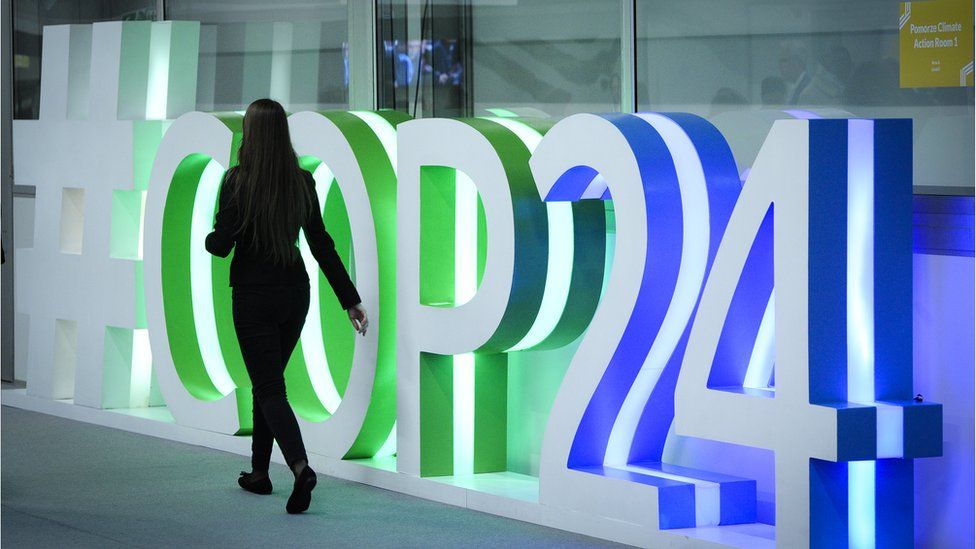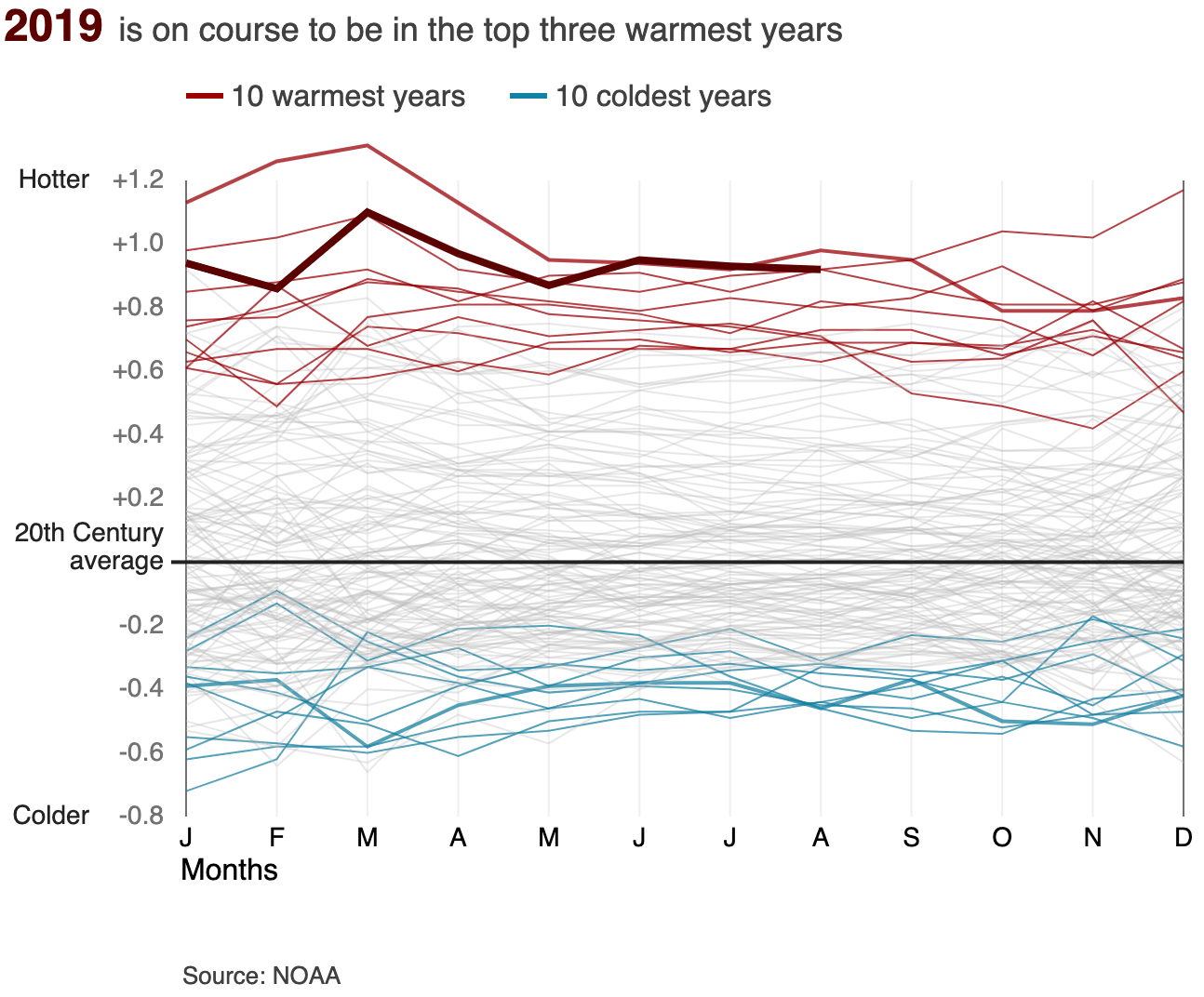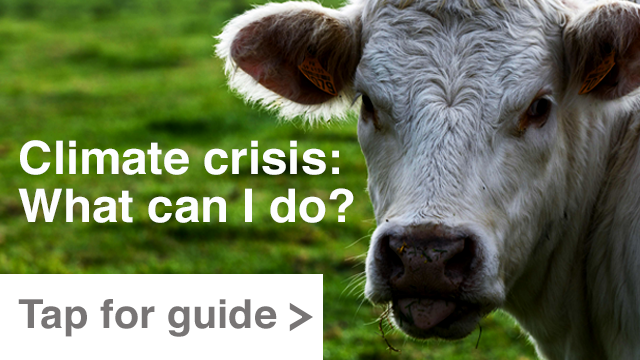Katowice UN climate talks extended due to sticking points
- Published

Climate talks in Poland have continued through the night as negotiators try to agree the next steps forward for the Paris climate agreement.
Thousands of delegates worked well past the official deadline for reaching a deal but key sticking points remain.
Rows continue over the issue of paying poorer countries for damage caused by global warming and the use of carbon markets to reduce emissions.
The likelihood of a deal increased on Friday after a new text was released.
The outline decision contains plans for a common rulebook for all countries, with flexibility for poorer nations.
There are also calls for all countries to increase their carbon cutting commitments by 2020.
But many issues are not yet settled, as developing countries seek recognition and compensation for the impact of rising temperatures.
The idea of being legally liable for causing climate change has long been rejected by richer nations, who fear huge bills well into the future.
At these talks, the question of loss and damage only features as a footnote in the text at present, something that has irritated developing countries.
Prof Myles Allen, from the University of Oxford told BBC News: "Climate change is already affecting many people around the world and the people most affected by climate change are not those who have historically contributed most to the problem.
Another issue causing problems is the question of 'market mechanisms', where countries can buy carbon credits from each other as a way of reducing their emissions. Similar schemes in the past were often shown to be fraudulent.
But many observers believed that overall, some progress is being made.
"It was never going to be great, not least because the US is playing a laggard role, but I think we can get a decent outcome, if it's framed in the right way," said Alden Meyer from the Union of Concerned Scientists.
Prof Allen added: "For countries like Russia and Saudi Arabia, where an enormous chunk of their national income arises from sales of fossil fuels, this is a much deeper problem, and that's where sticking points are arising."
Earlier, the former president of the Maldives, and now their lead negotiator, Mohamed Nasheed, made an impassioned plea for urgent progress on cutting carbon.
"It's just madness for us to allow global CO2 levels (in the atmosphere) to go beyond 450 parts per million, and temperatures to shoot past 1.5 degrees," he told a press briefing on Thursday.
"That can still be prevented. If we come together on the basis of the emergency facing us, we can do it.
"Every country at this summit will have hell to pay if we don't."
What are the delegates trying to decide?
Representatives from 196 states are here trying to sort out some very tricky questions pertaining to the rulebook of the Paris agreement which comes into force in 2020.
These are the regulations that will govern the nuts and bolts of how countries cut carbon, provide finance to poorer nations and ensure that everyone is doing what they say they are doing.
It sounds easy but it is very technical. At the moment countries often have different definitions and timetables for their carbon cutting actions.
However some progress is being seen in shaping the rules.
"Some of the text that is key to the rulebook, in terms of the transparency of countries reporting their mitigating actions are pretty strong. It is better than it was a week ago," said one senior negotiator.
But there are significant holdups.
Poorer countries want some "flexibility" in the rules so that they are not overwhelmed with regulations that they don't have the capacity to put into practice.
"The rulebook right now hangs in the balance, because you need all countries on board and you need to support developing countries," said Jennifer Morgan from Greenpeace.
"Flexibility can mean a lot of things and I think some countries are using that word to delay having to implement rules, and others are worried because they don't have the capacity to do it, when you don't have a clear signal from developed countries that they are going to provide that support it just brings a lot of uncertainty."
As well as the rulebook, what else needs to be decided?
There's a strong push to recognise the science of the IPCC, which earlier this year produced a critical report on how the world would be impacted by temperatures rising by 1.5C this century.
The decision to welcome this report was rejected amid controversy earlier in the conference when Saudi Arabia, the US, Kuwait and Russia wanted to just take note of the report.
When consensus couldn't be found, the text about the IPCC was dropped - much to the surprise of a majority of countries. There is a determination here to ensure that at the end of this meeting a "COP decision" will recognise the IPCC.
"There are 196 countries in the UN and 192 counties agree," said Mohamed Nasheed.
"We are just talking about four that do not agree, and these four are taking us hostage."
What about cutting carbon faster?
There is a big push here for countries to up their ambition, to cut carbon deeper and with greater urgency.
In the light of the IPPC report many delegates want to see a rapid increase in ambition before 2020 to keep the chances of staying under 1.5C alive.
Right now, the plans that countries lodged as part of the Paris agreement don't get anywhere near that, described as "grossly insufficient" by one delegate from a climate vulnerable country.
It is not just the negotiators and ministers here who want to see progress on cutting carbon. Business is looking for a signal from this meeting about the future.
"Companies are ready to invest and banks are ready to finance," said Carlos Salle from Spanish energy conglomerate, Iberdrola.
"So we need that greater ambition in the policy to enable business to move further and faster."
Who's really in charge of these negotiations?
Poland holds the COP presidency but there is a lot of concern among delegates that they lack an overall picture of what should emerge from the meeting.
Most people want to see a strong rulebook, a commitment by countries to raise their ambitions and carbon cutting promises before 2020 and some clarity on how much money will be delivered to poorer countries - as well as when it will arrive.
While some negotiators say the Poles are doing a good job in difficult circumstances, many are critical, saying they are responding to the needs of the rich and not the poor.
"I think the presidency is too honed in with the what the high-emitting countries are looking for right now and that could lead to a weak outcome here," said Jennifer Morgan from Greenpeace.
"Often in these talks when it's quite complex, and you don't have clear leadership, that's when countries like Saudi Arabia can come in and just wreak havoc. That's why we need the ministers from EU to come and work with poor nations to drive that home to counterbalance what the Saudis and the Poles are doing here."
When will it all end?
For the more than 20,000 people attending these talks, the end can't come quick enough.
Most have been here for around two weeks. The expectation is that it will be Saturday afternoon at the earliest.
Some are worried that it could go into Sunday, but most delegates have flights to catch on that date so the pressure will be on to finish by then.
Follow Matt on Twitter @mattmcgrathbbc.
No more beef? Five things you can do to help stop rising global temperatures

